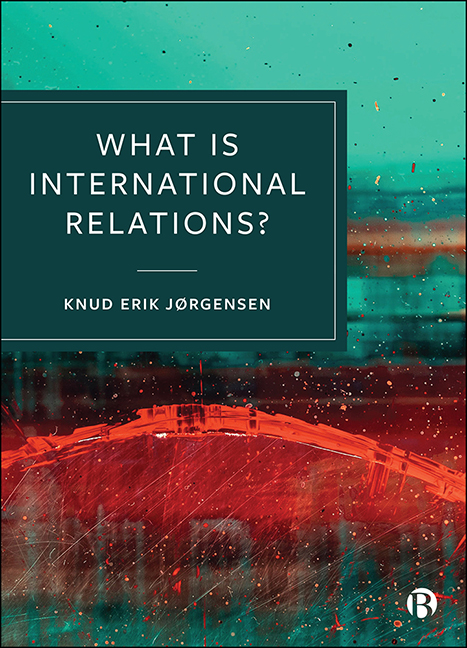Book contents
- Frontmatter
- Contents
- List of Figures, Tables and Box
- List of Abbreviations
- Preface
- Introduction
- 1 What is the Subject Matter?
- 2 What are the Human Sciences?
- 3 What is a Discipline?
- 4 What is Theory?
- 5 What is Disciplinary Diversity?
- 6 What is Community?
- 7 Globalizing International Relations?
- Conclusion
- Notes
- References
- Index
3 - What is a Discipline?
Published online by Cambridge University Press: 13 May 2022
- Frontmatter
- Contents
- List of Figures, Tables and Box
- List of Abbreviations
- Preface
- Introduction
- 1 What is the Subject Matter?
- 2 What are the Human Sciences?
- 3 What is a Discipline?
- 4 What is Theory?
- 5 What is Disciplinary Diversity?
- 6 What is Community?
- 7 Globalizing International Relations?
- Conclusion
- Notes
- References
- Index
Summary
Discipline. From the Latin discere, to learn.
Introduction
Having examined its subject matter and situated the discipline in the human sciences (i.e. in the combined environment of the social sciences and the humanities), we should address an issue that goes to the bone of this book but which is strangely avoided in much IR disciplinary self-reflection: ‘What is a discipline?’ The term ‘discipline’ might appear on every second page of any given IR book but seldom in the index, indicating that it is not handled in a focused or structured fashion. Without a solid conceptualization of ‘discipline’, whatever is claimed about it will rest on shaky ground or, at worst, be irrelevant. One factor explaining why poor conceptualization is the case may be that examinations of ‘the discipline’ have focused on the discipline as such and not on the discipline in the context of the changing role and dynamics of scientific disciplines in modern society (for an exception, see Buzan and Little, 2001). A second factor may be the typical reduction of ‘discipline’ to either its theories or various article metrics. A third factor may be that comparisons between IR and other disciplines are based on impressions about other disciplines, such as the odd idea that political science has a well-defined distinct subject matter and a core of theories and methods about which there is widespread consensus.
It follows that, to understand how the IR discipline has changed over time and how it has changed with the changing context of disciplinary knowledge, there is quite some work to do. It seems to me that we are walking in circles not only in relation to subject matter and social science but also the discipline. This is a different way of saying that debates during the early decades of the 21st century are somewhat similar to debates in the 1950s or the 1980s.
I aim to break the vicious circle by means of three steps. First, I address the key issue of what a scientific discipline is. My reasoning is that, before we can argue about IR's disciplinary status, we need to understand the social processes of discipline formation. Not many scholars can help us but the sociologist Rudolf Stichweh offers some very interesting ideas about the process of discipline formation and reproduction, so he is the obvious choice to guide us (Stichweh, 1992; 2003).
- Type
- Chapter
- Information
- What Is International Relations? , pp. 45 - 68Publisher: Bristol University PressPrint publication year: 2021

